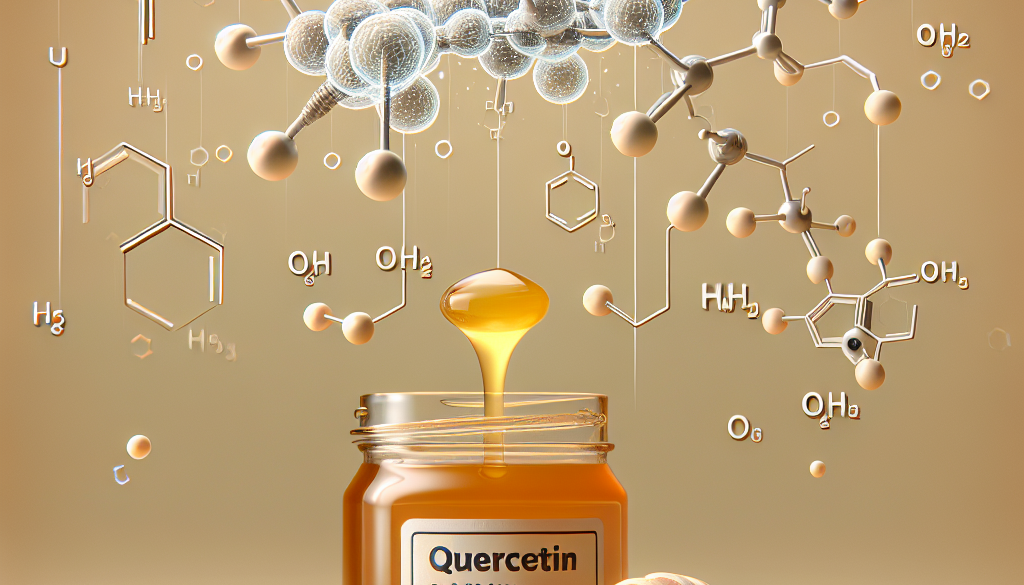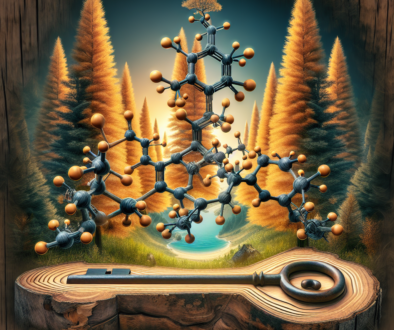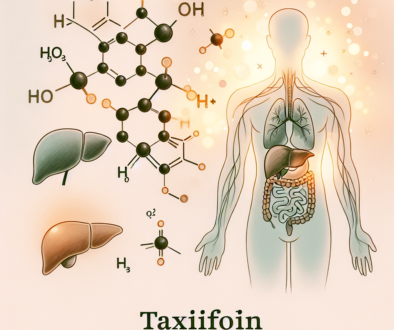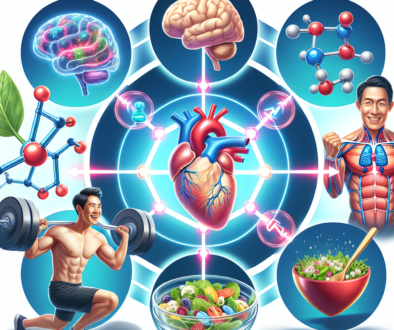Does honey contain quercetin?
-
Table of Contents
- Quercetin in Honey: Unveiling the Nutritional Synergy
- Understanding Quercetin: A Potent Flavonoid
- Does Honey Contain Quercetin?
- Factors Influencing Quercetin Levels in Honey
- Health Benefits of Quercetin in Honey
- Research and Case Studies on Quercetin in Honey
- Maximizing the Benefits: Choosing the Right Honey
- Conclusion: The Sweet Synergy of Honey and Quercetin
- Discover ETprotein’s Premium Protein Products
Quercetin in Honey: Unveiling the Nutritional Synergy
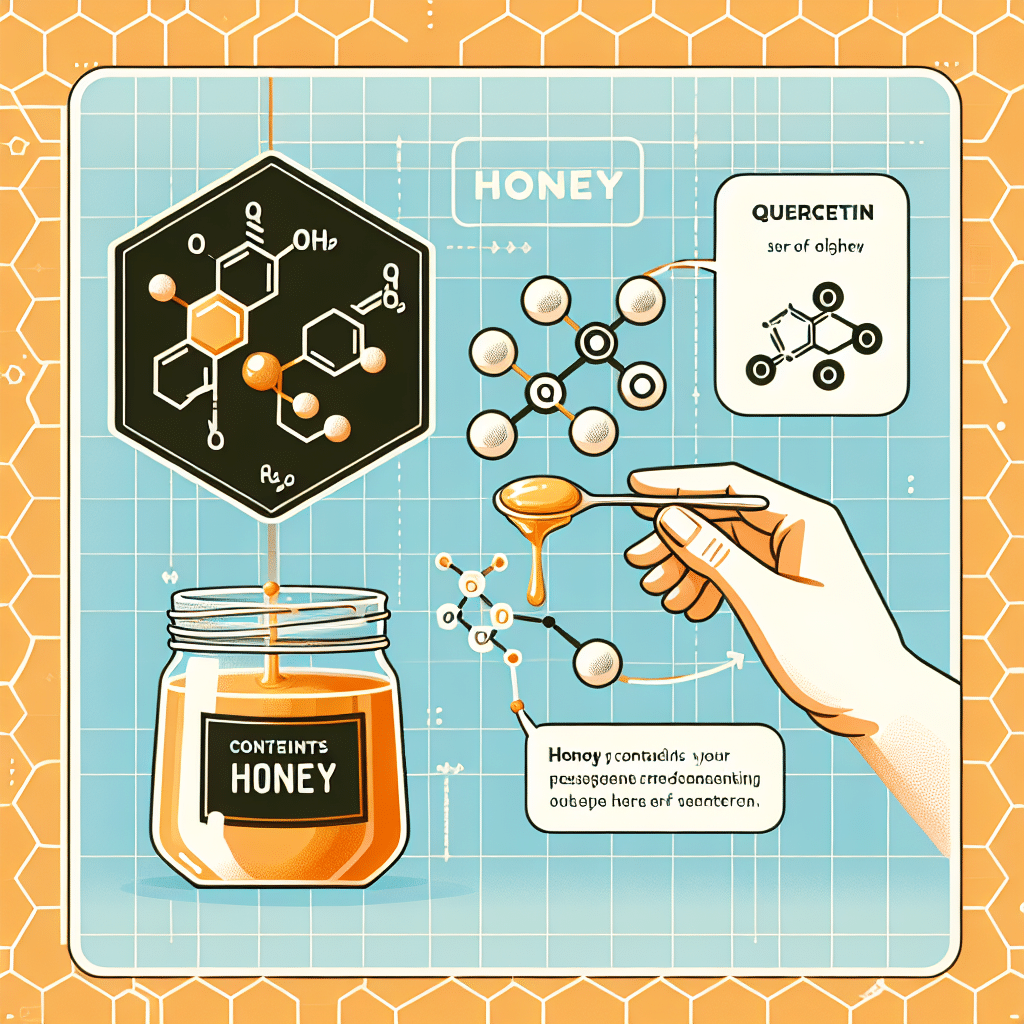
Honey, a natural sweetener with a rich history, has been used for centuries not only for its delightful taste but also for its therapeutic properties. Among the myriad of compounds found in honey, quercetin is a flavonoid that has garnered attention for its potential health benefits. This article delves into the presence of quercetin in honey, its implications for health, and the factors that influence its concentration.
Understanding Quercetin: A Potent Flavonoid
Quercetin is a type of flavonoid, a class of polyphenolic compounds known for their antioxidant properties. It is found in various fruits, vegetables, leaves, and grains. Quercetin is revered for its potential to combat inflammation, allergies, and even certain diseases. Its presence in honey, therefore, raises questions about the quantity and the impact it has on the overall nutritional value of this golden elixir.
Does Honey Contain Quercetin?
Yes, honey does contain quercetin, but the concentration can vary widely depending on several factors. These include the type of flowers the bees forage on, the geographical location, and the processing methods used to extract and package the honey. Raw, unprocessed honey typically contains higher levels of quercetin and other flavonoids compared to processed honey.
Factors Influencing Quercetin Levels in Honey
- Botanical Source: The type of flowers bees visit has a significant impact on the quercetin content of honey. For instance, honey derived from the nectar of caper flowers or buckwheat tends to have higher quercetin levels.
- Geographical Location: The environment where the bees collect nectar can affect the flavonoid profile of honey. Different regions have unique vegetation, which in turn influences the quercetin content.
- Processing and Storage: Heat and light can degrade quercetin. Therefore, raw and minimally processed honeys, stored away from direct sunlight, preserve more of this valuable flavonoid.
Health Benefits of Quercetin in Honey
Quercetin’s presence in honey contributes to its health-promoting properties. Some of the potential benefits include:
- Antioxidant Activity: Quercetin can neutralize free radicals, reducing oxidative stress and potentially lowering the risk of chronic diseases.
- Anti-inflammatory Effects: It may help modulate the body’s inflammatory response, beneficial for conditions like arthritis and heart disease.
- Antihistamine Properties: Quercetin has been shown to stabilize mast cells, which can alleviate allergy symptoms.
- Cardiovascular Health: By improving endothelial function and reducing blood pressure, quercetin can contribute to heart health.
Research and Case Studies on Quercetin in Honey
Several studies have investigated the quercetin content in honey and its health implications. For example, a study published in the “Journal of Agricultural and Food Chemistry” analyzed the flavonoid content of different types of honey and found that darker honeys generally contained more quercetin. Another study in the “Journal of ApiProduct and ApiMedical Science” highlighted the role of quercetin in reducing inflammation and its potential therapeutic applications.
Maximizing the Benefits: Choosing the Right Honey
To ensure you are getting honey with the highest possible quercetin content, consider the following tips:
- Opt for Raw Honey: Choose raw, unfiltered honey to maximize the flavonoid content, including quercetin.
- Look for Darker Varieties: Darker honeys, such as buckwheat honey, are often richer in quercetin and other antioxidants.
- Buy Local and Organic: Local, organic honey is more likely to be minimally processed and free from additives that can dilute its nutritional value.
Conclusion: The Sweet Synergy of Honey and Quercetin
Honey is more than just a sweet treat; it’s a complex food with a diverse range of compounds, including quercetin. The presence of this flavonoid enhances honey’s health benefits, contributing to its antioxidant, anti-inflammatory, and antihistamine properties. While the quercetin content can vary, choosing raw, darker varieties of honey can help you reap the most benefits from this natural synergy.
Discover ETprotein’s Premium Protein Products
While honey offers a sweet source of quercetin, ETprotein provides a range of high-quality protein products that can complement a healthy diet. Whether you’re looking for organic rice protein, clear pea protein, or specialized L-(+)-Ergothioneine (EGT) supplements, ETprotein has you covered. Their products are non-GMO, allergen-free, and come with a guarantee of purity and quality, making them an excellent choice for anyone looking to enhance their nutritional intake.
About ETprotein:
ETprotein, a reputable protein and L-(+)-Ergothioneine (EGT) Chinese factory manufacturer and supplier, is renowned for producing, stocking, exporting, and delivering the highest quality organic bulk vegan proteins and L-(+)-Ergothioneine. They include Organic rice protein, clear rice protein, pea protein, clear pea protein, watermelon seed protein, pumpkin seed protein, sunflower seed protein, mung bean protein, peanut protein, and L-(+)-Ergothioneine EGT Pharmaceutical grade, L-(+)-Ergothioneine EGT food grade, L-(+)-Ergothioneine EGT cosmetic grade, L-(+)-Ergothioneine EGT reference grade and L-(+)-Ergothioneine EGT standard. Their offerings, characterized by a neutral taste, non-GMO, allergen-free attributes, with L-(+)-Ergothioneine purity over 98%, 99%, cater to a diverse range of industries. They serve nutraceutical, pharmaceutical, cosmeceutical, veterinary, as well as food and beverage finished product distributors, traders, and manufacturers across Europe, USA, Canada, Australia, Thailand, Japan, Korea, Brazil, and Chile, among others.
ETprotein specialization includes exporting and delivering tailor-made protein powder and finished nutritional supplements. Their extensive product range covers sectors like Food and Beverage, Sports Nutrition, Weight Management, Dietary Supplements, Health and Wellness Products, and Infant Formula, ensuring comprehensive solutions to meet all your protein needs.
As a trusted company by leading global food and beverage brands and Fortune 500 companies, ETprotein reinforces China’s reputation in the global arena. For more information or to sample their products, please contact them and email sales(at)ETprotein.com today.

